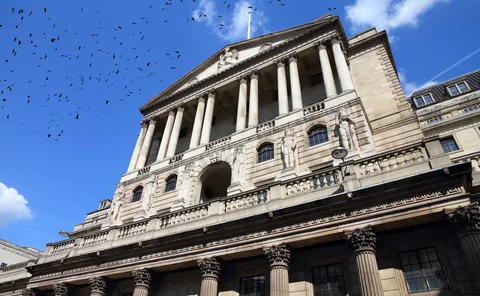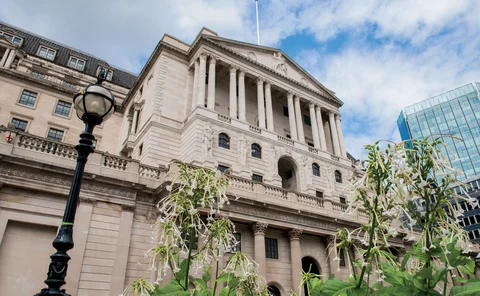Insurance
Bank failure déjà vu
New bank capital rules were meant to ensure failures would be less frequent and resolution not involve taxpayer money. Then came the collapse of Silicon Valley Bank and Credit Suisse, writes Jesper Berg
IMF’s Adrian on the systemic threat posed by a ‘weak tail’ of financial institutions
The IMF’s financial counsellor speaks to Christopher Jeffery about bank runs and emergency interventions, market and oversight failings, and the need for action on run rate assumptions, interest rate risk, deposit insurance, crypto regulation and a ‘weak…
Climate change and the role for central banks
Gavin Bingham, Andrew Large and Paul Fisher explain how climate change affects central banks and the competing tensions it raises in relation to policy responses
A troubling trilemma
Central banks need to tread a fine line as they serve as the economy’s police, fire brigade and paramedics
Central Banking Awards 2023: third group of winners announced
Awards include economic research, payments reform and risk management services
BoT’s Sethaput on inflation dynamics, central bank mandates and multi-lateral payments
The Bank of Thailand governor speaks with Christopher Jeffery about the trend towards higher inflation, the sustainable finance challenge, experiments with CBDCs and governance issues related to multi-lateral payments
Bank of Jamaica to regulate non-bank sector after fraud scandal
Central bank takes over from commission after alleged crime that targeted Usain Bolt
BoE says rush to sell could undermine insurance stability
Supervisor questions whether some firms’ stress-test assumptions are “realistic”
Capturing moral hazard: the Scarlet Pimpernel of finance
Moral hazard exists in many contexts, but can be ‘damned elusive’ to capture, writes Jesper Berg
FTX collapse: what went wrong?
Regulators close in as downfall of major exchange rips through crypto sector
UK government proposes ‘competitiveness’ mandate for BoE
Measure proposed despite IMF warning that it could clash with financial stability mandate
Rethinking regulation of the modern financial system
Bank of Italy’s Maurizio Trapanese writes that rules need to address uncertainty as well as measurable risks, entity types as well as activities, and should not be overly complex
Most central banks have oversight of non-bank payments systems
Less than half have oversight of non-bank fintech service providers
Sovereign green bonds: the reserve portfolio’s panacea?
German, Swedish, Danish and UK debt managers speak to Victor Mendez-Barreira about ‘twin bonds’ and other efforts to solve green bond liquidity concerns
BoE climate stress test finds impact will fall on bank customers
Sam Woods questions whether capital is “best tool” to address climate change
BoE backs cut to insurers’ capital requirements
Post-Brexit move to ease regulations requires tightening of some other rules, central bank says
The international effort to manage NBFI risks: where do we stand?
The Covid-19 shock demonstrated more needs to be done to address stability risks posed by the NBFI sector. Maurizio Trapanese details progress made during the Italian G20 presidency as well as outstanding macro-prudential issues
Digital money and central banks
Central banks must reflect on the monetary policy, regulatory and financial stability implications from crypto assets, stablecoins and CBDCs to stay relevant in the digital age of money
Ukrainian central bank says lenders and payments remain stable
Shevchenko warns over foreign currency pricing as Russia increases reinsurance capital
The longest book ever written?
The Single Rulebook on EU financial regulation is a serious contender for the prize of the longest book ever written. But will it deliver a safer and better financial system?
Fed warns of China debt risks
Financial Stability Report mainly optimistic about systemic health, including housing market
Most central banks invest in derivatives
External managers facilitate wider use of these instruments
Covid-19, crypto and climate weigh on global economy – GFSR
Central banks face difficult “intertemporal trade-offs”; poorer nations unlikely to regain pre-Covid growth levels for “many, many years”, says IMF’s financial counsellor Tobias Adrian
Emerging market central banks regulate more sectors
A higher proportion are the sole banking, non-bank and micro-finance sector regulators






















